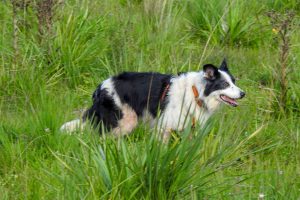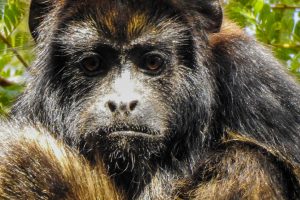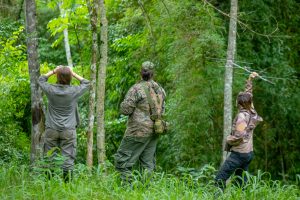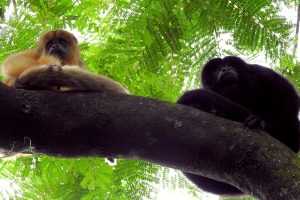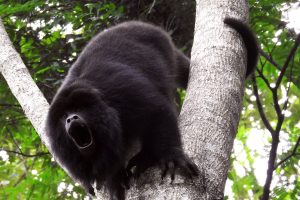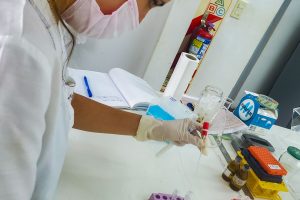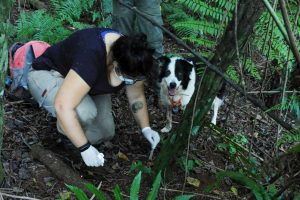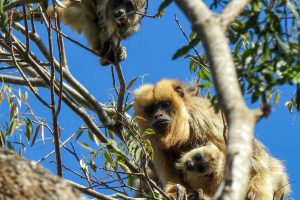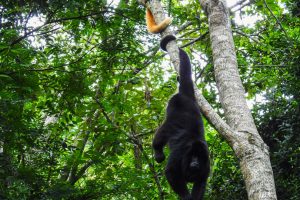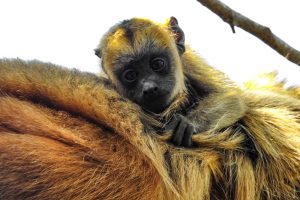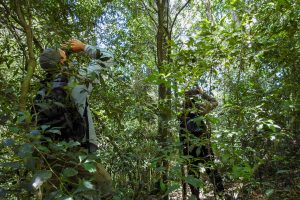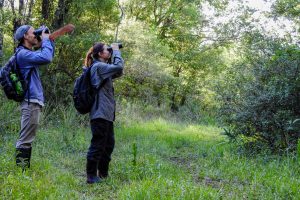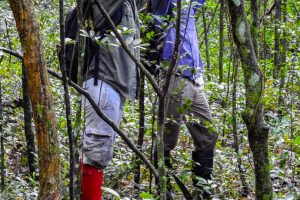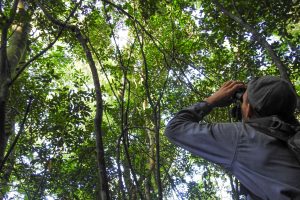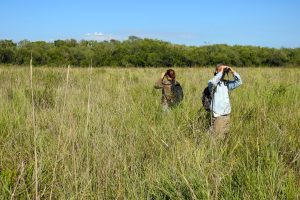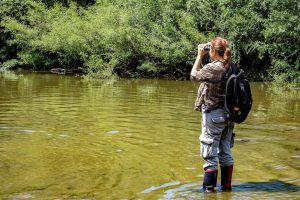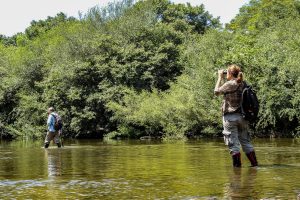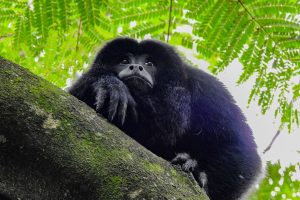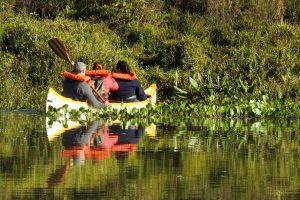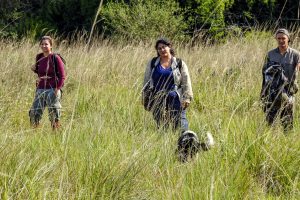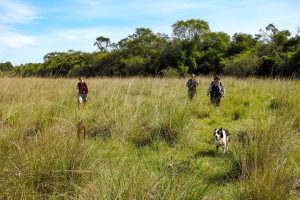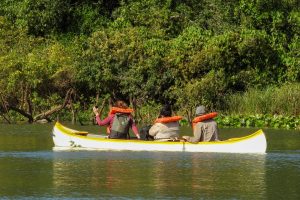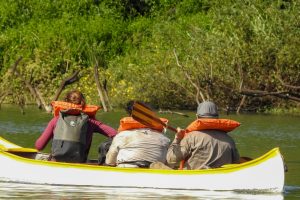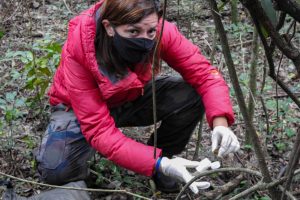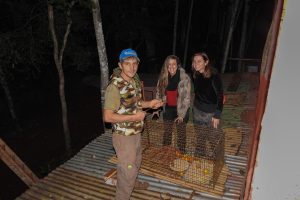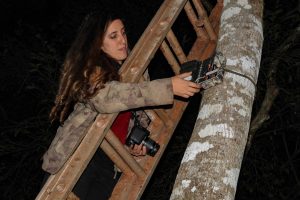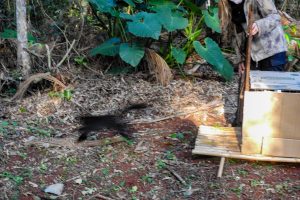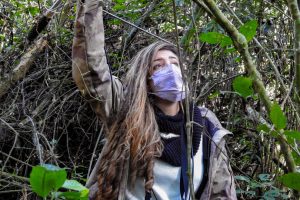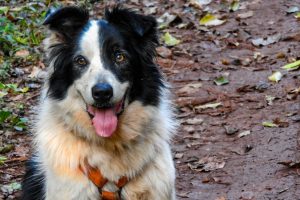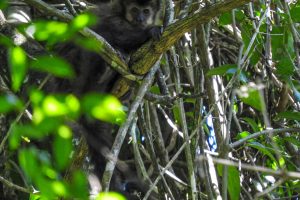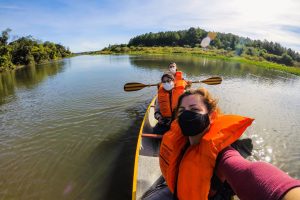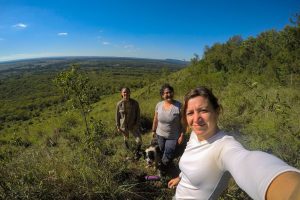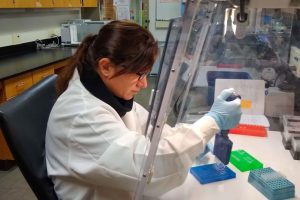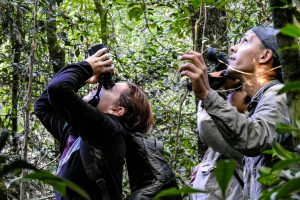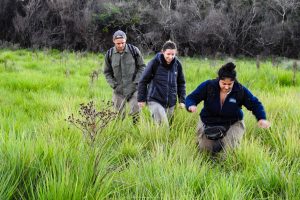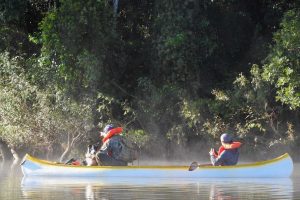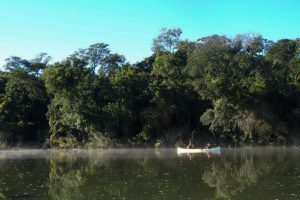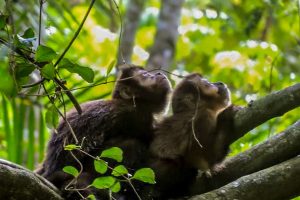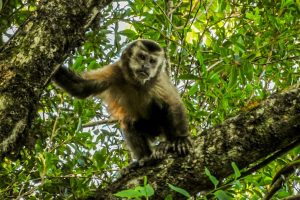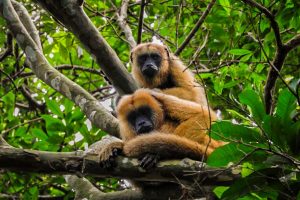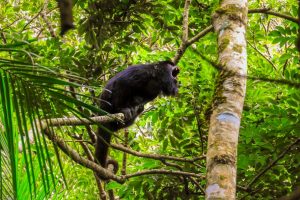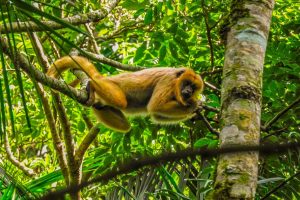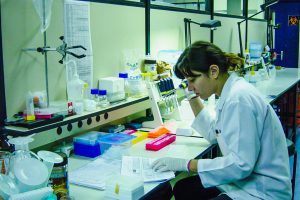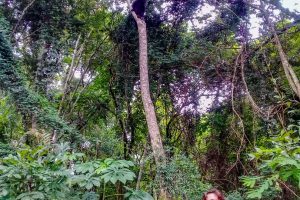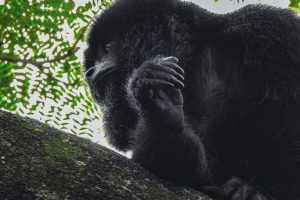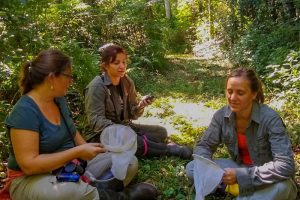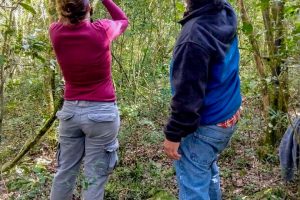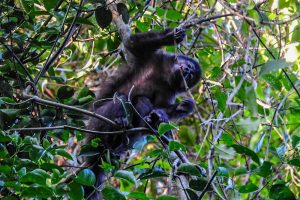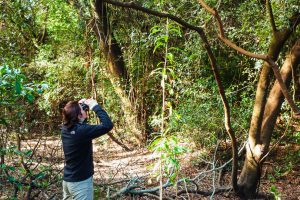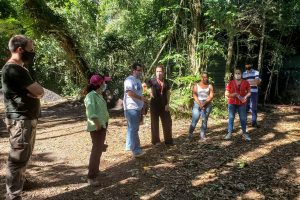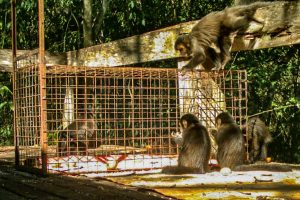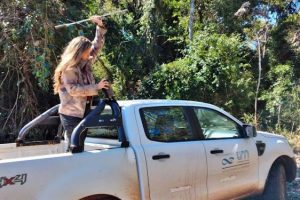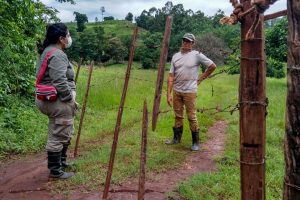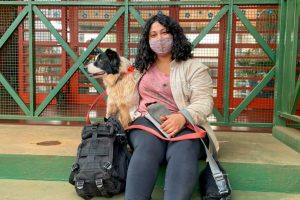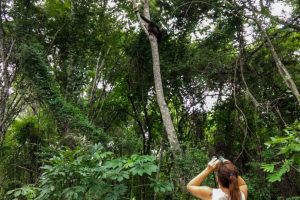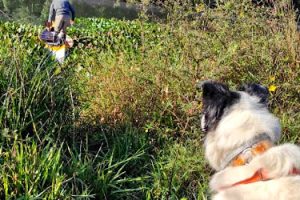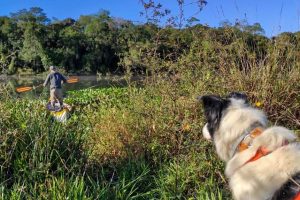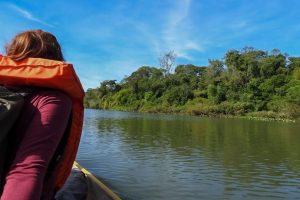Our principle research activities include studies on ecology, genetic structure, infectious disease dynamics and the biogeography of the two howler monkey species native to Argentina, the black and gold howler monkey (Alouatta caraya) and the brown howler monkey (Alouatta guariba clamitans), both of which are important indicator species for disease outbreaks. We also conduct research on caí capuchin monkeys (Sapajus nigritus), principally on how habitat fragmentation and anthropogenic disturbance effects their genetics, ecology, and health.
The opportunity to carry out long term investigations at site with these species, and which also have different physical characteristics (isolated, continuous, urban, rural, for example) have been fundamental in understanding the impacts of habitat alterations on primate population dynamics, particularly those effects caused by natural and anthropogenic dispersal barriers and habitat loss in Argentina. Deforestation and fragmentation are increasing in the north east of the country, mainly due to explosive human population growth and associated activities of ranching, soy plantations, tree farming using exotic species, and rice paddies, among others. These activities modify the environment directly, and also have many secondary effects on wildlife, such as restricting dispersal, reduced access to resources, and exposure to disease, all of which can cause population declines and even lead to extinction.
Through programs of citizen science, we work with veterinarians, volunteers, students, and local communities, who can provide us with important information to evaluate the distribution of primates, and identify risk areas for disease transmission.
The data we gather from our 3 focal species also helps in the conservation, and is used in several ways, for example: 1) to define priority areas to establish new protected or management areas, 2) determine levels of genetic flow between populations, and 3) identify the area of origin of animals rescued from the illegal wildlife trade. To aid this last activity we have developed a genotype database (https://doi.org/10.5281/zenodo.3378896) which can be used to distinguish populations of Alouatta caraya, identifying 3 genetic clusters as management units for conservation and as possible release sites to return trafficked animals to the wild in their area of origin.
The results of our studies have demonstrated the importance of genetic sampling for reintroduction and recovery programs, as well as highlighting critical zones of wildlife trafficking for various species. Also, following yellow fever outbreaks in border areas of Brazil, together with local and national authorities, we have surveyed howler monkey populations to be able to provide early detection of new outbreaks in Argentina.
In particular, for Alouatta guariba clamitans, which is the most threatened primate taxon in the country, we are working on adequate strategies for its recovery and one of the actions considered is evaluating the possibility of starting a reintroduction and/or breeding program with the potential to ex situ conservation. Based on this, NPC Argentina will be part of a Workshop to evaluate the feasibility of the reintroduction of individuals of the species in the province of Misiones, Argentina together with the Ministry of Ecology of Misiones, the Primate Specialists Group of the IUCN, the Foundation Félix de Azara and other entities.

